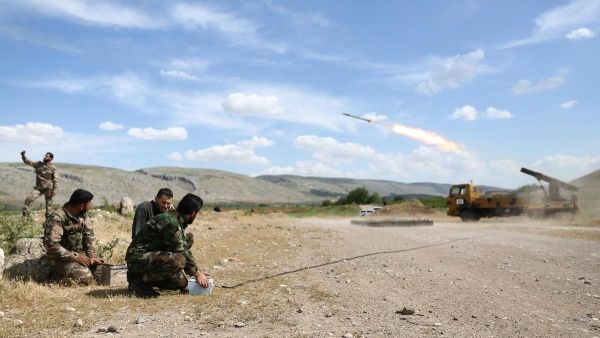Forces aligned with the UN-backed, Tripoli-based, Government of National Accord (GNA) have pushed back fighters working for Khalifa Haftar who attempting to take the capital earlier in the year.
A decisive change in the balance of military strength occurred when Turkey entered the conflict. In January the Turkish parliament approved the deployment of troops to Libya, which has been in a civil war since 2014. Troops and drones were sent to the country.
Many countries - including the US, Israel, and Greece – have condemned Turkey’s involvement arguing that it is counter to an arms embargo set out by the UN that sought to scale down the violence in the country.
Turkey and Russia are using similar tactics in Libya. Turkey has been paying Syrian opposition fighters to work alongside GNA soldiers in Libya. For many of the fighters their motivation for switching from freedom-fighter to mercenary is simple: they need the money. As one fighter told Foreign Policy magazine, “my wife and four children live in a tent. I don’t have money to buy cement blocks to build a room for them.”
For many of the fighters their motivation for switching from freedom-fighter to mercenary is simple: they need the money.
This fighter in particular is able to earn over 40 times what he was earning in Syria, with a monthly wage coming to around $2000.
Russia, too, is hiring mercenaries from Syria. With the help of Bashar al-Assad’s security forces, rebel fighters are being recruited and sent to Libya. Many are promised amnesty from deserting Assad’s army as well as high wages. They then work alongside Wagner, a Russian mercenary group with close ties to the Kremlin.
Wagner, thought to be named because its leader, Dmitry Utkin, has a penchant for the Third Reich, has also been involved in Russian-backed military campaigns in Ukraine, Sudan, Syria, and the Central African Republic. In 2017 they were linked to a video depicting the torture and torture of a man – whose body was later set alight whilst Russian speaking fighters posed for photographs.
Many are promised amnesty from deserting Assad’s army as well as high wages.
Reports on social media have recently said that Wagner soldiers have left white supremacist graffiti on burnt-down mosques and neo-Nazi tags.
Crimes such as these are, in a sense, why Russia chose mercenaries: plausible deniability. After the 2017 video emerged the presidential spokesman Dmitri Peskov said, "I am sure it has nothing to do with the military operation in Syria. In this case, there is no risk to our reputation.” Despite there being established links between the Kremlin and the Wagner group, mercenaries, including foreign fighters, allow proxy-powers to deny any claim put forward by other states or journalists.
Over the weekend Egypt was put into the Libyan spotlight after it seemed to have threatened Turkey with war. The Egyptian President Abdel Fattah El Sisi said, after the taking of Sirte and Jufra cities by GNA forces, “a ceasefire must hold now in Libya, or else any intervention by Egypt in the country will be legitimate as per international laws." Many understood this to be a hint towards an armed conflict between Egyptian and Turkish forces in Libya.
However, a few days later the Egyptian Foreign Minister, Sameh Shoukry, said that Sisi’s words had been misunderstood and that they were actually a call for peace.
But after the GNA’s recent victories, what now? Dr Wolfram Lacher from the German Institute for International Affairs argues that “Turkish and Russian attempts to freeze the conflict are bound to collide with the political ramifications of Haftar’s setbacks in Tripoli.”
“A wide-ranging realignment of allegiances and alliances is likely to ensue. The institutions that have served as the interlocutors for Russia and Turkey – the GNA and Haftar’s Libyan Arab Armed Forces – will come under pressure and could ultimately crumble,” Lacher writes.
Libya now faces the possibility of being the stage on which large powers attempt to assert their control. The most oil-rich country in Africa, the people of Libya are threatened on all sides. Such is the international nature of Libya’s war, that other conflicts and diplomatic disputes thousands of miles away could threaten to increase tensions. Egypt’s woes over the building of the Ethiopian Renaissance Dam could be increasing their interest in Libyan resources, for example.







